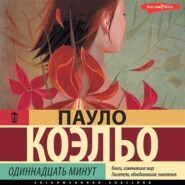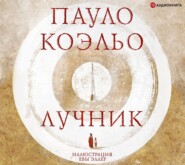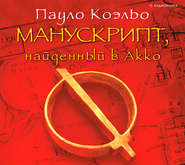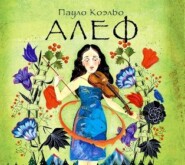По всем вопросам обращайтесь на: info@litportal.ru
(©) 2003-2024.
✖
The Winner Stands Alone
Автор
Год написания книги
2018
Настройки чтения
Размер шрифта
Высота строк
Поля
‘Forgive my rudeness. I only said I wasn't interested in buying anything to see if you would lower the price. Anyway, my name is Igor Malev I flew in from Moscow yesterday, and I'm still a little jet-lagged.’
‘My name's Olivia,’ says the young woman, pretending to believe his lie.
Without asking her permission, he sits down on the bench beside her. She shifts up an inch or so.
‘What do you want to talk about?’
‘First, take the money’
Olivia hesitates, then, looking around, realises that she has no reason to be afraid. Cars are now driving down the one available lane, young people are heading for the beach and an elderly couple are coming towards them down the pavement. She puts the money in her pocket, not even bothering to count it; she has enough experience of life to know that it's more than enough.
‘Thank you for accepting my offer,’ says the Russian. ‘You asked me what I want to talk about? Well, nothing very important.’
‘You must be here for a reason. You need a reason to visit Cannes at this time of year when the city is as unbearable for the people who live here as it is for the tourists.’
Igor is looking at the sea. He lights a cigarette.
‘Smoking's bad for your health,’ she says.
He ignores this remark.
‘What, for you, is the meaning of life?’ he asks.
‘Love.’
Olivia smiles. This really is an excellent way to start the day, talking about deeper things than the price of each piece of handiwork or the clothes people are wearing.
‘And for you?’
‘Yes, love too. But for me it was also important to earn enough money to show my parents that I was capable of succeeding. I did that, and now they're proud of me. I met the perfect woman, we married and I would like to have had children, to honour and fear God. The children, alas, never came.’
Olivia doesn't like to ask why. The man in his forties continues in his perfect French:
‘We thought of adopting a child. Indeed, we spent two or three years thinking about it, but then life began to get too busy what with business trips and parties, meetings and deals.’
‘When you sat down here to talk, I thought you were just another eccentric millionaire in search of an adventure, but I'm enjoying talking about these things.’
‘Do you think about the future?’
‘Yes, I do, and I think my dreams are much the same as yours. Obviously, I'd like to have children as well…’
She pauses. She doesn't want to hurt the feelings of this unexpected new companion.
‘… if, of course, I can. Sometimes, God has other plans.’
He appears not to have heard her answer.
‘Do only millionaires come to the Festival?’
‘Millionaires and people who think they're millionaires or want to become millionaires. While the Festival is on, this part of the city is like a madhouse. Everyone behaves as if they were terribly important, apart from the people who really are important; they're much politer; they don't need to prove anything to anyone. They don't always buy what I have to sell, but at least they smile, make some pleasant remark and treat me with respect. What are you doing here?’
‘God made the world in six days, but what is the world? It's what you or I see. Whenever someone dies, a part of the universe dies too. Everything a person felt, experienced and saw dies with them, like tears in the rain.’
‘“Like tears in the rain”… I saw a film once that used that phrase. I can't remember now what it was.’
‘I didn't come here to cry. I came to send messages to the woman I love, and in order to do that, I need to destroy a few universes or worlds.’
Instead of feeling alarmed by this last statement, Olivia laughs. This handsome, well-dressed man, speaking fluent French, doesn't seem like a madman at all. She was fed up with always hearing the same things: you're very pretty, you could be doing better for yourself, how much is this, how much is that, it's awfully expensive, I'll go away and think about it and come back later (which they never do, of course), etc. At least this Russian has a sense of humour.
‘Why do you need to destroy the world?’
‘So that I can rebuild my own world.’
Olivia would like to try and console him, but she's afraid of hearing the famous words: ‘I think you could give meaning to my life,’ at which point the conversation would come to an abrupt halt because she has other plans for her future. Besides, it would be absurd on her part to try and teach someone older and more successful how to overcome his difficulties.
One way out would be to learn more about his life. After all, he's paid her - and paid her well - for her time.
‘How do you intend to do that?’
‘Do you know anything about frogs?’
‘Frogs?’
‘Yes, various biological studies have shown that if a frog is placed in a container along with water from its own pond, it will remain there, utterly still, while the water is slowly heated up. The frog doesn't react to the gradual increase in temperature, to the changes in its environment, and when the water reaches boiling point, the frog dies, fat and happy.
‘On the other hand, if a frog is thrown into a container full of already boiling water, it will jump straight out again, scalded, but alive!’
Olivia doesn't quite see what this has to do with the destruction of the world. Igor goes on:
‘I was like that boiled frog. I didn't notice the changes. I thought everything was fine, that the bad things would just go away, that it was just a matter of time. I was ready to die because I lost the most important thing in my life, but, instead of reacting, I sat there bobbing a pathetically about in water that was getting hotter by the minute.’
Olivia plucks up the courage to ask:
‘What did you lose?’
‘The truth is I didn't lose anything. Life sometimes separates people so that they can realise how much they mean to each other. For example, last night, I saw my wife with another man. I know she wants to come back to me, that she still loves me, but she's not brave enough to take the first step. Some boiled frogs still think it's obedience that counts, not ability: those who can, lead, and those with any sense, obey. So where's the truth in all this? It's better to emerge from a situation slightly scalded, but alive and ready to act. And I think you can help me in that task.’
Olivia tries to imagine what is going through the mind of the man beside her. How could anyone leave such an interesting person, someone who can talk about things she has never even thought about? Then again, there's no logic to love. Despite her youth, she knows that. Her boyfriend, for example, can be quite brutal and sometimes hits her for no reason, and yet she can't bear to be apart from him even for a day.
What exactly were they talking about? About frogs and about how she could help him. She can't help him, of course, so she'd better change the subject.
‘And how do you intend to set about destroying the world?’
Igor points to the one free lane on the Boulevard de la Croisette.
‘Let's say that I don't want you to go to a party, but I daren't say so openly. If I wait for the rush hour to begin and stop my car in the middle of the road, within ten minutes, the whole of the boulevard opposite the beach will have come to a standstill. Drivers will think: “There must have been an accident” and will wait patiently. In fifteen minutes, the police will arrive with a truck to tow the car away’
‘That kind of thing is always happening.’

















